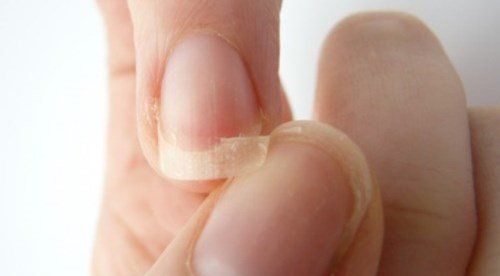This is an automatically translated article.
Levothyrox medicine contains levothyroxine sodium 100mcg along with other excipients such as starch, gelatin, magnesium stearate... The drug is indicated in the treatment of thyroid-related diseases.
1. Effects of Levothyrox
The compound levothyroxine synthesized in Levothyrox has a similar effect to the natural hormone mainly secreted from the pituitary gland. The compound levothyroxine is metabolised to T3 in the peripheral organs and also acts as a hormone. In particular, this compound also destroys its specific effects at the T3 receptor. However, the body is also unable to distinguish exogenous and endogenous levothyroxine.
Levothyrox is taken orally. The drug is almost completely absorbed into the body in the upper part of the small intestine. Depending on the content as well as the formulation of the drug, the amount absorbed into the body can be up to 80% and the maximum time is about 5 to 6 hours.
Once taken, the effect of Levothyrox drug can start after 3 to 5 days and the compound levothyroxine has a very high binding ability to specific transport proteins, the rate is up to 99.97%. The binding of the hormone to the protein in is not covalent, so that the hormone bound to the plasma is more rapidly and continuously exchanged with other free hormone components. Furthermore, due to its high protein binding, the compound levothyroxine is not affected by hemodialysis or hemodialysis. The mean half-life of levothyroxine spans 7 days. In hyperthyroidism this will be shorter (approximately 3 to 4 days) or longer in hypothyroidism (approximately 9 to 10 days). The volume of distribution in the body is about 10 to 12 liters. The liver organ contains 1⁄3 of the total extrathyroidal levothyroxine compound and this compound is rapidly exchanged with levothyroxine in the serum. Thyroid hormone is metabolized mainly in the kidneys, brain, liver, and muscle. The metabolites are excreted in the urine and faeces. The overall metabolic clearance of the compound levothyroxine may be about 1.2 liters of plasma/day.
2. Dosage and usage of Levothyrox
Levothyrox 50μg is indicated for use in the following cases:
Treatment of simple benign goiter or prevention of recurrence after performing simple goiter surgery, this process also depends on hormonal status after surgery of the patient; Use of alternative therapy in hypothyroidism or suppressive therapy in thyroid cancer; Levothyroxine in combination with antithyroid drugs in the treatment of hyperthyroidism. Dosage for each individual will be determined based on the results of laboratory tests and clinical examination of the doctor. In some cases, patients have high levels of T4 and FT4, so the mean serum thyroid-stimulating hormone index is considered a reliable standard for treatment.
Thyroid hormone therapy should be started at a low dose and may be increased gradually every 2 to 4 weeks until an adequate replacement dose is reached.
For infants and young children with conditions associated with congenital hypothyroidism, then rapid replacement therapy plays an important role. However, in this case, the recommended starting dose of 10 to 15 mcg/kg body weight per day was used and maintained at this dose for the first 3 months. After this time, the doctor may adjust the dose for each individual based on clinical signs or thyroid hormone and TSH levels.
In the elderly or with coronary artery disease and persistent severe hypothyroidism, caution should be exercised in using the first dose of thyroid hormone therapy. Therefore, doctors may prescribe these subjects with a low starting dose and then gradually increasing it over a long period with thyroid hormone monitoring activity to determine the status and effectiveness of use.
Lower doses of Levothyroxine may be optimal for treatment or complete replacement and lead to incomplete correction of TSH hormone levels. Therefore, before making a dose adjustment, the drug should be carefully considered.
The doses used above are for reference only. In case of using Levothyrox, it is necessary to carefully read the instructions for use and consult and prescribe the doctor.
3. Side effects when using Levothyrox
When used in excess of the tolerance limit of levothyroxine in each case can lead to clinical symptoms typical of hyperthyroidism. Especially the case of increasing the dose too quickly at the beginning of treatment can cause cardiac arrhythmias with signs such as atrial fibrillation, extrasystoles, tachycardia, palpitations or chest pain, headache. , muscle weakness, fever, vomiting, menstrual cycle disorder, restlessness, increased sweating, insomnia, diarrhea...
In case of forgetting a dose, it should be taken as soon as you remember. However, if it is almost time for the next dose, the missed dose can be skipped. The patient should not take a double dose to make up for the missed dose. Because it can cause unwanted side effects when using more than usual doses.
For cases of side effects when using Levothyrox, you can contact your doctor to adjust the dose or even stop the drug for a while and use it again if there are no signs related to it. side effects.
In cases of hypersensitivity to the ingredients of Levothyrox, it may cause skin and respiratory reactions. Or sometimes there may be cases of angioedema. Therefore, when experiencing any signs related to drug use, patients should contact their doctor directly or go to a medical facility near their residence for timely treatment.
Besides the effects and benefits of Levothyrox, the drug may be contraindicated in some cases such as hypersensitivity to the active substance or ingredients of the drug, adrenal insufficiency, pituitary insufficiency or thyrotoxicosis have not been treated. For cases of acute myocardial infarction, acute myocarditis or acute pancarditis, Levothyrox should not be used in the treatment. Levothyrox is not indicated in combination for the combined treatment of antithyroid agents for hyperthyroidism in women during pregnancy.
Levothyrox medicine contains lactose, so patients with lactose intolerance due to hereditary or lactase deficiency and glucose-galactose malabsorption should not use this medicine.
In short, the effect of Levothyrox is to treat thyroid-related diseases. You need to use the medicine exactly as prescribed by the doctor to promote the effectiveness of treatment and ensure safety for health.
Please dial HOTLINE for more information or register for an appointment HERE. Download MyVinmec app to make appointments faster and to manage your bookings easily.













